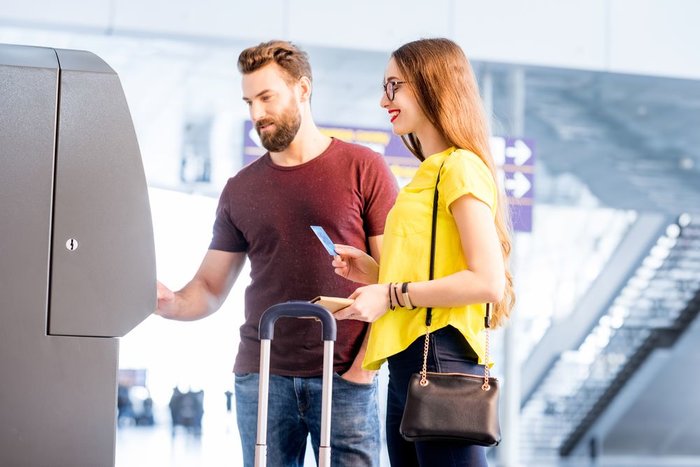
Get the most of your money when travelling abroad by avoiding these 10 common travel money mistakes. We’ve compiled a list to help you on your next holiday. Saving that extra little bit can make all the difference – maybe the price of a meal out or an excursion.
1. Don’t get your cash at the airport
Of all the places you can exchange foreign currency, airport kiosks offer perhaps the worst value for money. Instead of leaving it until the last minute at the airport, make sure you shop around beforehand. High street options such as the Post Office or Marks and Spencer will offer you far better value. However, there are also comparison sites, like Comparecurrency, to allow you to see where the best deals are, so with a little bit of research, you can easily find out how to make huge savings.
2. Don’t forget to let your bank know
If you’ll be using your debit or credit card when abroad, it’s vital to let your bank know of your plans for travelling. A card suddenly spending lots of money in a foreign country is highly likely to flag up automatic fraud protection systems at most major banks – which could mean your card is frozen, leaving you with at best an embarrassing situation but at worst stranded in an area you don’t know with no means of getting any cash. Make sure you inform your bank so they don’t cut you off.
3. Leave the travellers’ cheques behind
While travellers cheques once offered a great way to safely pay abroad, those days are long gone. Fewer and fewer places will now accept them, and they offer poor value for money even compared to most banks and travel cards.
- Check your ATM fees Getting cash out abroad with your debit card is a much simpler process than in days gone by, but you could still be charged a huge fee by your bank. Always research this before you leave so you know exactly how much you’ll be spending on each transaction. Many banks have a system where you’ll be charged a small flat fee and an additional percentage – so it usually makes sense to withdraw larger amounts of cash than frequently taking out a little bit.
5. Consider a prepaid card
One way to get around bank and ATM fees is to consider prepaid cards. Some free cards will let you load them up with money and then withdraw cash abroad for far cheaper than the rate your bank will give you. It’s well worth seeing how much you could save with this method – if you have time before your trip, check them out before you go.
6. Make sure you understand the local exchange rate As well as the price you’ll be getting on currency exchanges, it’s always good to have an idea in your head of how much items in foreign currencies are actually costing you. If you start to treat unfamiliar currencies like monopoly money, you’ll soon find yourself spending far more than you realized.
7. Make sure you check out your phone pricing Some mobile phone providers offer roaming in other countries with little or no fees, but sometimes it can add up to something truly eye-watering. Check with your provider what any additional fees will be before you go, and ask about any special deals they have on offer. Sometimes an add-on will be available which could save you a huge amount of money.
8. Don’t use public Wi-Fi hotspots for online banking and transactions
Hotel and public Wi-Fi spots are free, convenient and easy. But they’re not secure. These often have minimal security precautions and should never be used for any financial activities. It’s much safer to instead use your roaming data, which is far harder for hackers to penetrate.
9. Don’t arrive back with handfuls of leftover coins
You’re likely to have some leftover foreign currency at the end of your trip, but try to get it changed into notes of larger denominations before you return. Many places will be happy to exchange it back into your native currency, but they usually only accept notes of certain denominations.
10. Don’t be fooled by 0% commissions deals
0% commission might sound attractive, but it’s an absurd idea if you pause to think about it. In reality, this is semantics – there’s no separate charge labelled as a commission, but you can be sure that you’re paying the overheads in an otherwise terrible exchange rate. Make sure you’re always comparing like for like.
